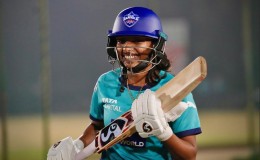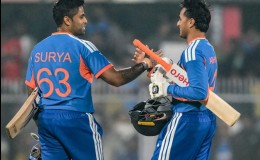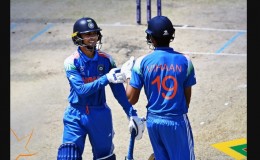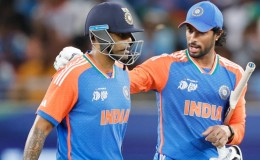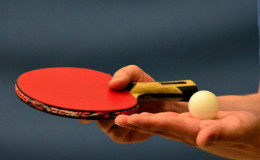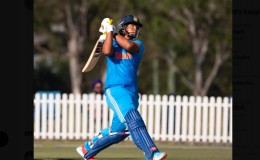It was a shocking day for Indian athletics on Thursday as Pinki Pramanik, a female athlete, who had won a gold medal in women's 4x400m relay at the 2006 Asian Games, was arrested on rape charges levelled by a woman who claims the former athlete is actually a man. The woman, who is a divorce and a mother of one, in question lodged a complaint saying that she was the live-in partner of the athlete, who had promised her marriage.
Meanwhile the Police have obtained a court order for a medical test to prove Pramanik's gender, even though the former athlete is opposing it. "I have undergone numerous tests in my career as an athlete. Why should I agree to more ridiculous tests?" said Pramanik according to reports.
This is not the first time a female athlete has been accused of being a male and these kinds of allegations dates back to 1930s. The earliest known case is that of Stanisława Walasiewicz (aka Stella Walsh), a Polish athlete who won a gold medal in the women's 100 m at the 1932 Summer Olympics in Los Angeles, but who after her death in 1980 was discovered to have had partially developed male genitalia.
Here Indian Sports News tries to bring forth some of the cases where female athletes have been accused of being males:
Santhi Soundarajan: Not very long ago, another Indian athlete Santhi Soundarajan, who had won a silver medal the 2006 Asian Games, was stripped of the medal after failing a gender verification test, which disputed her eligibility to participate in the women's competition. Soundarajan holds the national record for the women’s 3000 metres steeplechase clocking 10:44.65 seconds. At a national meet in Bangalore in July 2005 she won the 800m, 1,500m and 3000m. She won the silver medal in 800 m at the Asian Championships in Incheon, South Korea in 2005.
Caster Semenya: Athletics world was in for a shock in August 2009, when the South African athlete who won the 800m final at the world championships was asked to take a gender verification test to prove she is a woman. The 18-year-old, who had never competed outside of Africa before, and aroused suspicions when she posted the fastest 800m time in the world, winning gold at the African Junior Championships. Semanya, from Polokwane, Limpopo province, possesses an unusually developed muscular frame and a deep voice and has clocked times which belie her youth.
Ewa Kłobukowska: Ewa had won the gold medal in women's 4x100 m relay and the bronze medal in women's 100 m sprint at the 1964 Summer Olympics in Tokyo, was the first athlete to fail a gender test in 1967. She was found to have a rare genetic condition which gave her no advantage over other athletes, but was nonetheless banned from competing in Olympics and professional sports.
Zdenka Koubkowa: Zdenka Koubkowa of Czechoslovakia won the women's 800 meter race in London, breaking the world record in 1934. She was later found to have ambiguous genitalia, and was diagnosed with "pseudohermaphroditismus masculinus," based on a subjective evaluation of her body. This clinical evaluation took place about 30 years after her birth in 1913. She was raised as a girl, which was how she competed. But at the time of her consultation, she requested to start living her life as a man.
Stella Walsh: In the 1936 Olympic Games in Berlin, Helen Stephens of the United States was accused of being a male, after beating Stella Walsh (Stanisllawa Walasiewicz) of Poland by 1.8m, in the 100m sprint. Stephens won the gold medal, but was forced to prove her gender, even though she had been propositioned by Adolf Hitler. She passed inspection, but surprisingly, it was Stella Walsh, who was later uncovered to be a male, after being shot dead as an innocent bystander in a robbery in Cleveland, 60 years later. The autopsy report unambiguously declared her to be a male, via genital inspection. She was the 100m sprint champion from the previous 1932 Los Angeles Olympic Games, becoming the first women to break the 12 second barrier.
Dora Ratjen: In 1936 Dora Ratjen competed in the Berlin Olympic Games. Two years later, she was discovered to have ambiguous genitalia at the European championships in Vienna, where she became high jump champion, with a height of 1.7m, becoming the world record holder at that time. Soon after she was said to "have no right to participate in women's competitions" by the German Athletic Federation. Sometime after World War II, Dora was found to have changed her first name to Hermann, when she started living life her life as a man.
Balas, Aschelkanova, and Itkina: Romanian world champion high jumper Iolanda Balas, and two more Russians, Tatyana Aschelkanova, high jumper, and Maria Itkina, 400m world record holder, were also accused of as being male during the Cold War, never having their genders verified by officials, due to retirement. Similarly they were also accused of being on anabolic steroids, because drug testing had not been brought in at that time either. Be that as it may, today women are much stronger athletes, all being monitored with drug tests and gender verification procedures.
Eva Klobukowska: Polish sprinter Eva Klobukowska became the first public victim of the sex chromatin test in 1967, at Kiev, USSR, at the European Cup; even after several British Athletes at that time, failed the test and were quietly counselled about their new found abnormalities. This occured a year after passing the "old-style gynecological examination" in 1966, when she competed at the European Cup Championships in Budapest. She was found to have an XXY karyotype: "one chromosome too many to be declared a woman for the purposes of athletic competition". After a gynaecological examination, which proved to be normal, she was immediately banned from competition, and publically humiliated all over the world, because of her extra chromosome. A few years after Miss Klobukowska became pregnant and gave birth to a healthy baby.


